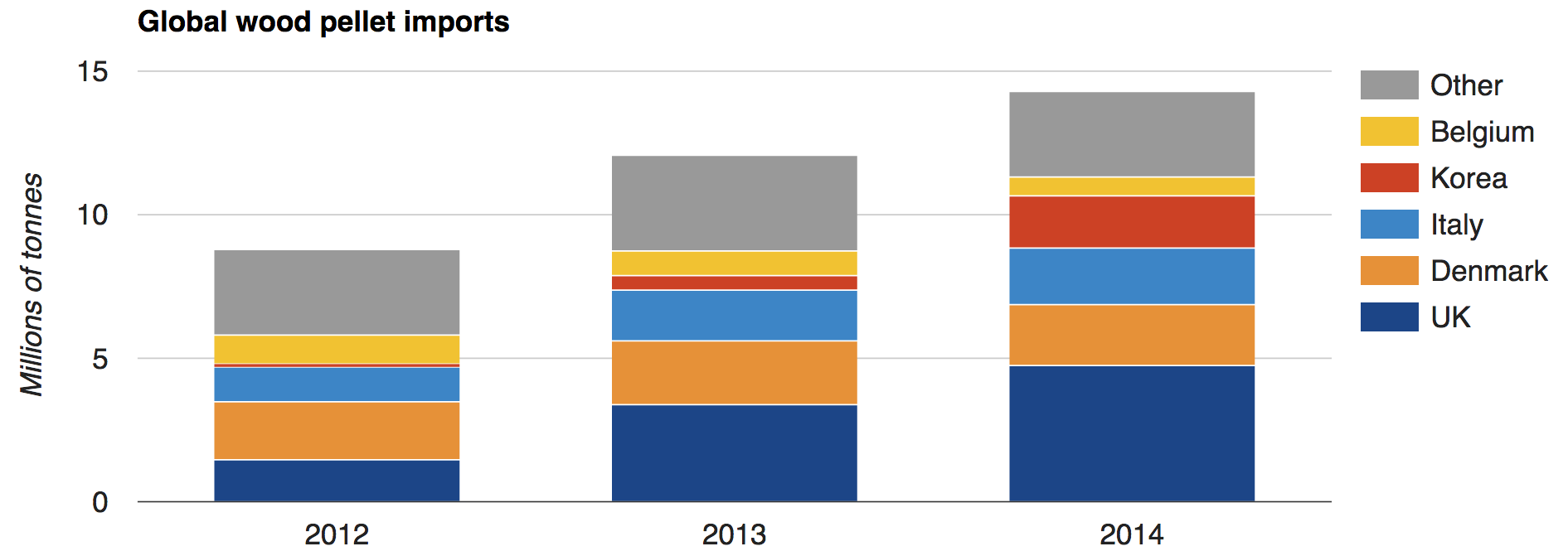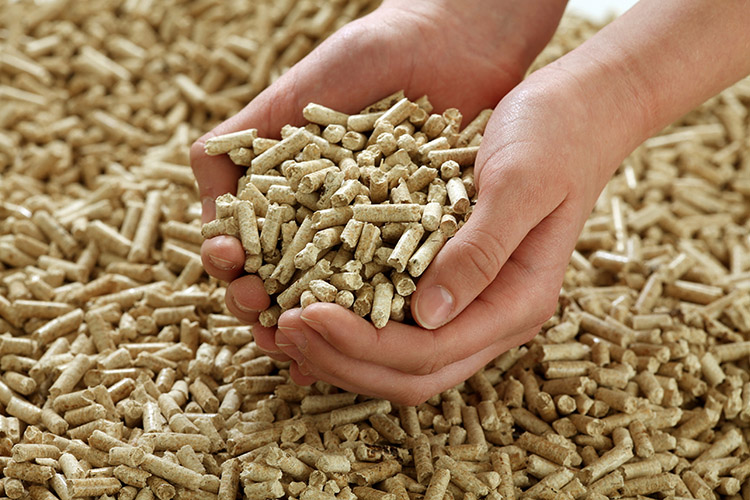Corn and Wood Pellet Market Forces
Corn prices spiked when demand for (corn-based) ethanol became the normal gasoline additive to reduce emissions in the USA. But, the American farmer increased production and prices have now normalized considerably.
Wood pellet prices are on the rise due to a massive shift in the UK and EU countries as they shift from coal to biomass (wood pellets) to fire their electric power plants. According to carbonbrief.org, “UK wood pellet imports have risen rapidly as Drax, its largest power station, has progressively converted units to biomass instead of coal. UK imports (of US produced wood pellets) have tripled since 2012 and its share of global trade has risen to 33%, up from 17% in 2012.” Of course, demand means higher prices, so we US residential customers should not expect to see wood pellet prices decline in the near future.

Foreign demand for quality, low emission, US produced hardwood pellets will likely cause cost increases for the next few years, or at a minimum stabilize prices at their current levels relative to other fuels. Consider the reality that nations have discovered the savings and environmental benefits of burning wood pellets. Except for the impact on cost, that says a lot to the homeowner about the sensibility of burning wood pellets for heat.
Sustainability
But here is the real problem behind wood pellets: sustainability. How much can world demand increase for North American hardwood pellets before deforestation becomes an issue? Let’s not make the mistake that was made regarding deforestation of the world’s tropical rain forests… many thought that they were so vast that no real human impact could be made on them. We now know that the opposite is true.
Not so with corn: The corn production capability of American farmers is formidable in their ability to supply the demand at stable prices. And, corn is sustainable and annually renewable. It takes one season to produce an ocean of corn, but years to grow a tree. Therefore, corn is the more environmentally responsible fuel of choice.
Visit our page About Corn Fuelto learn more.


0 Comments